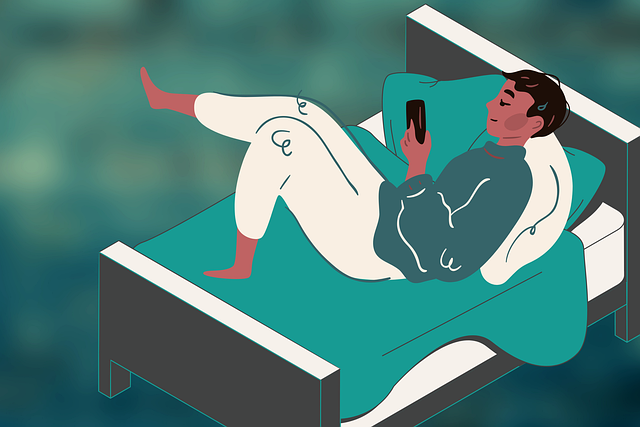Robocall harassment is a growing problem in Rapid City and South Dakota. Support groups offer safe spaces for victims to share experiences, block calls, and gain emotional support. Legal options include consulting an unwanted call lawyer in South Dakota or joining local law firms specializing in telemarketing laws. Engaging with like-minded individuals provides valuable insights into navigating legal aspects of robocall harassment. Residents can reclaim control by researching unwanted call law firms, joining support groups, staying informed about consumer protection laws, and taking legal action through qualified attorneys.
“Tired of relentless robocalls flooding your Rapid City home? You’re not alone. In a world where unwanted calls have become a prevalent nuisance, support groups offer a lifeline. This guide navigates the landscape of robocall harassment in Rapid City, exploring legal options with an unwanted call lawyer in South Dakota and highlighting the critical role of support groups for victims. Discover resources to combat these automated intrusions and reclaim your peace of mind.”
Understanding Robocall Harassment in Rapid City
Robocall harassment has become a pervasive issue in Rapid City and across South Dakota. These automated calls, often marketed as political surveys or debt collection attempts, can be overwhelming and intrusive for recipients who simply want to be left alone. The constant barrage of unwanted calls not only disrupts daily life but also creates a sense of unease and frustration among victims. In some cases, these calls may even include misleading or false information, adding another layer of distress.
Many residents find themselves struggling to cope with the sheer volume and frequency of robocalls they receive. This is where support groups come in as a vital resource. These groups provide a safe space for individuals to share their experiences, exchange strategies to block calls, and gain emotional support from peers facing similar challenges. Engaging with like-minded individuals can offer valuable insights into navigating the legal aspects of dealing with robocall harassment, encouraging victims to explore options such as consulting an unwanted call lawyer in South Dakota or joining forces through local unwanted call law firms in SD.
Legal Options for Unwanted Callers in South Dakota
In South Dakota, unwanted phone calls, often referred to as robocalls, are a common nuisance with potential legal repercussions for callers who violate privacy laws. If you’ve been the victim of repeated or unsolicited calls, knowing your rights and available actions is crucial. A unwanted call lawyer South Dakota or unwanted call attorney SD can guide you through the state’s regulations, such as the Telephone Consumer Protection Act (TCPA), which prohibits certain types of automated dialing campaigns and marketing calls without prior consent.
Victims may consider hiring a reputable unwanted call law firm SD to take legal action against persistent or malicious callers. These actions could include sending cease-and-desist letters, filing complaints with regulatory bodies, or even pursuing litigation for damages if the calls have caused significant distress or financial loss. Remember, understanding your rights and seeking professional advice from a qualified unwanted call lawyer South Dakota is an essential step in combating unwanted phone calls effectively.
Navigating Support Groups for Victims: A Guide
Navigating a support group can be challenging for those who’ve experienced unwanted calls, but it’s an essential step in the healing process. Many victims feel isolated and unsure where to turn after receiving relentless robocalls, so finding a community of like-minded individuals can provide much-needed comfort and understanding. Support groups offer a safe space to share experiences, frustrations, and concerns without judgment.
In Rapid City, South Dakota, those affected by unwanted calls can find guidance and representation from experienced attorneys specializing in robocall litigation. A reputable unwanted call lawyer or unwanted call attorney in SD can connect individuals to support groups tailored to their needs. These legal professionals understand the emotional toll of constant interruptions and are dedicated to assisting victims recover through both legal avenues and community resources, ensuring a comprehensive approach to dealing with the distressing phenomenon of robocalls.
The Role of an Unwanted Call Lawyer in SD
In the face of relentless robocalls, victims in Rapid City, South Dakota, now have a powerful ally: an unwanted call lawyer. These legal professionals specialize in navigating the intricate laws surrounding unsolicited telephone marketing calls, or robocalls. They offer invaluable expertise and support to individuals plagued by these persistent and often harassing calls.
Unwanted call lawyers in SD help clients understand their rights under state and federal regulations, such as the Telephone Consumer Protection Act (TCPA). These attorneys can take swift action on behalf of victims, sending cease and desist letters or filing legal claims against companies making illegal robocalls. By engaging a qualified unwanted call attorney South Dakota or joining a local support group, residents can reclaim their peace of mind and stop the deluge of unwelcome calls.
Resources and Next Steps for Rapid City Residents
If you’re a Rapid City resident fed up with persistent robocalls, there’s hope. Numerous unwanted call lawyer South Dakota and unwanted call attorney SD options are available to help. Start by researching unwanted call law firms South Dakota that specialize in telemarketing laws and have experience dealing with these cases. Many of these firms offer free consultations, allowing you to discuss your situation and explore legal avenues without any initial commitment.
Next, consider joining local support groups for robocall victims. These groups provide a platform to share experiences, exchange strategies, and gain solidarity. Additionally, stay informed about consumer protection laws in South Dakota that target unwanted calls. Keep an eye on local news, government websites, or consumer advocacy organizations for updates, which may offer further resources and next steps tailored to your needs.






